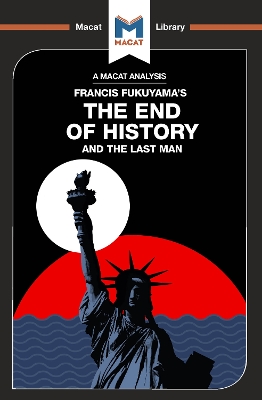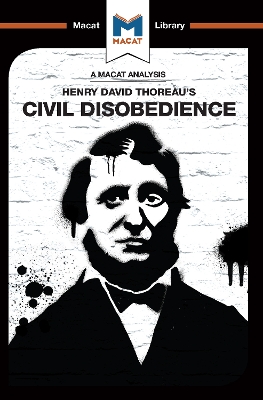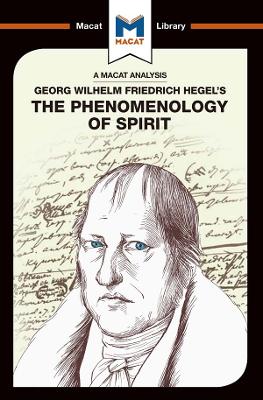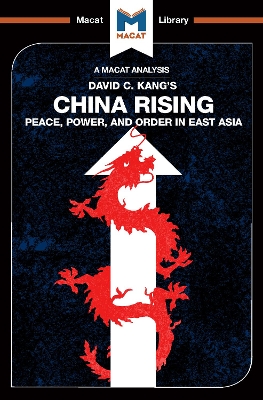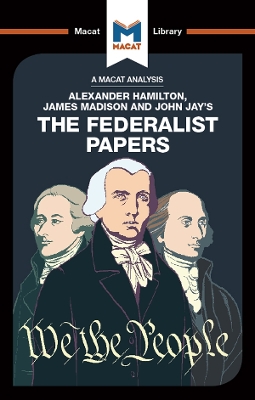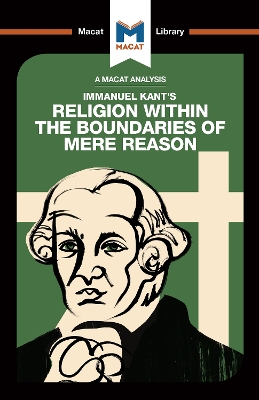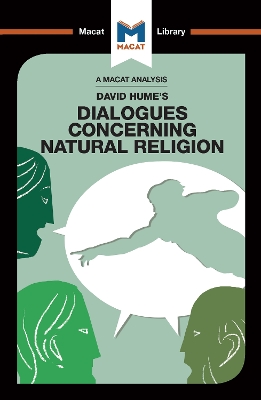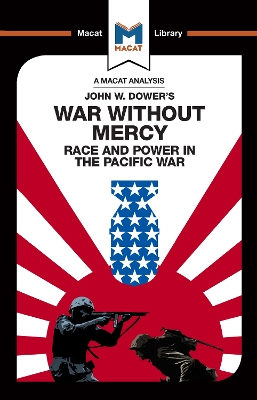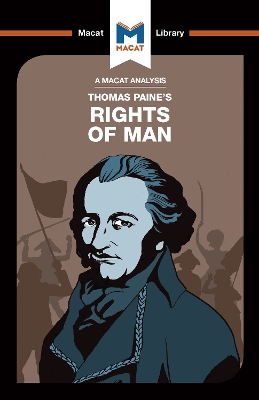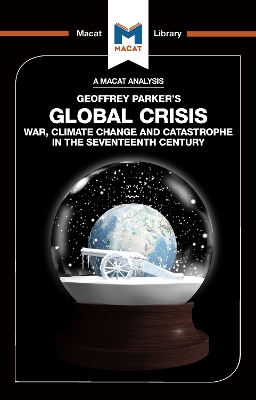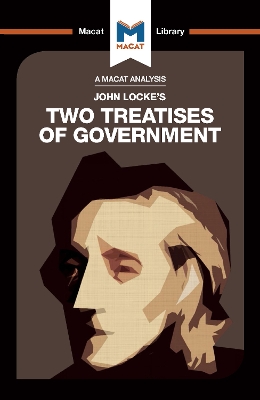The Macat Library
43 total works
An Analysis of Francis Fukuyama's The End of History and the Last Man
by Ian Jackson and Jason Xidias
Francis Fukuyama's controversial 1992 book The End of History and the Last Man demonstrates an important aspect of creative thinking: the ability to generate hypotheses and create novel explanations for evidence.
In the case of Fukuyama's work, the central hypothesis and explanation he put forward were not, in fact, new, but they were novel in the academic and historical context of the time. Fukuyama's central argument was that the end of the Cold War was a symptom of, and a vital waypoint in, a teleological progression of history.
Interpreting history as "teleological" is to say that it is headed towards a final state, or end point: a state in which matters will reach an equilibrium in which things are as good as they can get. For Fukuyama, this would mean the end of "mankind's ideological evolution and the universalization of Western liberal democracy as the final form of human government". This grand theory, which sought to explain the end of the Cold War through a single overarching hypothesis, made the novel step of resurrecting the German philosopher G.W.F. Hegel's theory of history - which had long been ignored by practical historians and political philosophers - and applying it to current events.
An Analysis of Henry David Thoraeu's Civil Disobedience
by Mano Toth and Jason Xidias
In Civil Disobedience, Henry David Thoreau looks at old issues in new ways, asking: is there ever a time when individuals should actively oppose their government and its justice system?
After a thorough review of the evidence, Thoreau comes to the conclusion that opposition is legitimate whenever government actions or institutions are unacceptable to an individual's conscience. What is particularly interesting is that Thoreau's creative mind took him deeper into the argument, as he concluded that this legitimate opposition really wasn't enough. In Thoreau's opinion, anyone who believed something to be wrong had a duty to resist it actively.
These ideas were completely at odds with the prevailing opinions of the day - that it was the duty of every citizen to support the state. Thoreau connected ideas and notions in a novel manner and went against the tide, generating new hypotheses so that people could see matters in a new light. It is a mark of the success of his creative thinking that his views are now considered mainstream, and that his arguments are still deployed in defence of the principle of civil disobedience.
Hegel's 1807 Phenomenology of Spirit is renowned for being one of the most challenging and important books in Western philosophy. Above all, it is famous for laying out a new approach to reasoning and philosophical argument, an approach that has been credited with influencing Karl Marx, Jean-Paul Sartre, and many other key modern philosophers. That approach is the so-called "Hegelian dialectic" - an open-ended sequence of reasoning and argument in which contradictory concepts generate and are incorporated into a third, more sophisticated concept.
While the Phenomenology does not always clearly use this dialectical method - and it is famously one of the most difficult works of philosophy ever written - the Hegelian dialectic provides a perfect template for critical thinking reasoning skills. A hallmark of good reasoning in the construction of an argument, and the searching out of answers must necessarily consider contradictory viewpoints or evidence. For Hegel, contradiction is key: it is precisely what allows reasoning to progress. Only by incorporating and overcoming contradictions, according to his method, is it possible for thought to progress at all. While writing like Hegel might not be advisable, thinking like him can help take your reasoning to the next level.
A critical analysis of David C. Kang's China Rising, which is a fine example of an author making use of creative thinking skills to reach a conclusion that flies in the face of traditional thinking.
The conventional view that the book opposed, known in international relations as 'realism,' was that the rise of any new global power results in global or regional instability. As such, China's development as a world economic powerhouse worried mainstream western geopolitical scholars, whose concerns were based on the realist assumption that individual countries will inevitably compete for dominance. Evaluating these arguments, and finding both their relevance and adequacy wanting, Kang instead turned traditional thinking on its head by looking at Asian history without preconceptions, and with analytical open-mindedness.
Producing several novel explanations for existing evidence, Kang concludes that China's neighbors do not want to compete with it in the way that realist interpretations predict. Rather than creating instability by jockeying for position, he argues, surrounding countries are happy for China to be acknowledged as a leader, believing that its dominant position will stabilize Asia, and give the whole region more of a hand in international relations.
Though critics have taken issue with Kang's conclusions, his paradigm-shifting approach is nevertheless an excellent example of developing fresh new conclusions through creative thinking.
An Analysis of Alexander Hamilton, James Madison, and John Jay's The Federalist Papers
by Dr. Jeremy Kleidosty and Jason Xidias
The 85 essays that maker up The Federalist Papers' clearly demonstrate the vital importance of the art of persuasion. Written between 1787 and 1788 by three of the "Founding Fathers" of the United States, the Papers were written with the specific intention of convincing Americans that it was in their interest to back the creation of a strong national government, enshrined in a constitution - and they played a major role in deciding the debate between proponents of a federal state, with its government based on central institutions housed in a single capital, and the supporters of states' rights.
The papers' authors - Alexander Hamilton, James Madison, and John Jay - believed that centralised government was the only way to knit their newborn country together, while still preserving individual liberties. Closely involved with the politics of the time, they saw a real danger of America splintering, to the detriment of all its citizens.
Given the fierce debates of the time, however, Hamilton, Jay and Madison knew they had to persuade the general public by advancing clear, well-structured arguments - and by systematically engaging with opposing points of view. By enshrining checks and balances in a constitution designed to protect individual liberties, they argued, fears that central government would oppress the newly free people of America would be allayed.
The constitution that the three men helped forge governs the US to this day, and it remains the oldest written constitution, still in force, anywhere in the world.
An Analysis of Immanuel Kant's Religion within the Boundaries of Mere Reason
by Ian Jackson
The eighteenth-century philosopher Immanuel Kant is as daunting as he is influential: widely considered to be not only one of the most challenging thinkers of all time, but also one of the most important. His Religion Within the Boundaries of Mere Reason takes on two of his central preoccupations - the reasoning powers of the human mind, and religion - and applies the full force of his reasoning abilities to consider the relationship between them. In critical thinking, reasoning is all about constructing arguments: arguments that are persuasive, systematic, comprehensive, and well-evidenced. And any examination involves stripping reasoning back to its barest essentials and attempting to get at the nature of the world by asking what we can know about God and morality from the power of our minds alone. Beginning from the axiom that God is, by definition, unknowable, Kant reasons that it is humans who bear the responsibility of creating the Kingdom of God. This, he suggests, we can do by acting morally in the world we experience - with a morality that can be shaped by reason alone. Dense and challenging, but closely and persuasively reasoned, Kant's case for human responsibility shows reasoning skills at their most impressive.
An Analysis of David Hume's Dialogues Concerning Natural Religion
by John Donaldson and Ian Jackson
David Hume's Dialogues Concerning Natural Religion is a philosophical classic that displays a powerful mastery of the critical thinking skills of reasoning and evaluation. Hume's subject, the question of the existence and possible nature of God, was, and still is, a persistent topic of philosophical and theological debate. What makes Hume's text a classic of reasoning, though, is less what he says, than how he says it. As he noted in his preface to the book, the question of 'natural religion' was unanswerable: so 'obscure and uncertain' that 'human reason can reach no fixed determination with regard to it.'
Hume chose, as a result, to cast his thoughts on the topic in the form of a dialogue - allowing different points of view to be reasoned out, evaluated and answered by different characters. Considering and judging different or opposing points of view, as Hume's characters do, is an important part of reasoning, and is vital to building strong persuasive arguments. Even if, as Hume suggests, there can be no final answer to what a god might be like, Dialogues Concerning Natural Religion shows high-level reasoning and evaluation at their best.
John Dower's War Without Mercy is an attempt to resolve the problem of why the United States fought World War II so very differently in the Pacific and European theaters. Specifically, the author sets out to explain why there was such vicious hostility between the US and Japan during the conflict. This was not merely a matter of outrage at Pearl Harbor, and understanding the phenomenon required going beyond the usual strategic, diplomatic and operational records that fuel most histories of war. Dower looked instead for alternate possibilities - and found them.
His book argues that the viciousness that marked fighting in the Pacific had deep roots in popular culture which created frightening racial stereotypes of the enemy on both sides of the ocean. Dower's focus on 'low culture' proved to be a useful way of generating alternative possibilities to mainstream thinking about US-Japanese relations. The thinking underpinning the book was innovative, and was challenged by some peers who failed to recognise how profoundly revealing material such as cartoons and cheap magazines could be. But the result was one of the most significant studies of 20th-century history yet written - one that yields a strong, well-reasoned and persuasive solution to the problem posed.
Thomas Paine's 1791 Rights of Man is an impassioned political tract showing how the critical thinking skills of evaluation and reasoning can, and must, be applied to contentious issues.
Divided into two parts, Rights of Man is, first, a response to Edmund Burke's arguments against the French Revolution, put forward in his Reflections on the Revolution in France - also available in the Macat Library - and, second, an argument for how to run a fair and just society. The first part is a sustained performance in evaluation: Paine takes Burke's arguments, and systematically exposes the ways in which Burke's reasons against revolution are inadequate compared to the necessity of having a just society run according to a universal notion of people's rights as individuals. The second part turns to an examination of different political systems, setting out a powerfully-structured argument for universal rights, a clear constitution enshrined in law, and a universal right to vote.
Though Paine is in many ways a stronger rhetorician than he is a clear thinker, his reasons for preferring democracy to hereditary forms of government are compelling, coherent and clear. Rights of Man is a masterclass in how to use good reasoning to present a persuasive argument.
Few historians can claim to have undertaken historical analysis on as grand a scale as Geoffrey Parker in his 2013 work Global Crisis: War, Climate Change and Catastrophe in the Seventeenth Century. It is a doorstop of a book that surveys the 'general crisis of the 17th century,' shows that it was experienced practically throughout the world, and was not merely a European phenomenon, and links it to the impact of climate change in the form of the advent of a cold period known as the 'Little Ice Age.'
Parker's triumph is made possible by the deployment of formidable critical thinking skills - reasoning, to construct an engaging overall argument from very disparate material, and analysis, to re-examine and understand the plethora of complex secondary sources on which his book is built. In critical thinking, analysis is all about understanding the features and structures of argument: how given reasons lead to conclusions, and what kinds of implicit reasons and assumptions are being used. Historical analysis applies the same skills to the fabric of history, asking how given chains of events occur, how different reasons and factors interact, and so on.
Parker, though, takes things further than most in his quest to understand the meaning of a century's-worth of turbulence spread across the whole globe. Beginning by breaking down the evidence for significant climatic cooling in the 17th-century (due to decreased solar activity), he moves on to detailed study of the effects the cooling had on societies and regimes across the world. From this detailed spadework, he constructs a persuasive argument that accounts for the different ways in which the effects of climate change played out across the century - an argument with profound implications for a future likely to see serious climate change of its own.
An Analysis of John Locke's Two Treatises of Government
by Dr. Jeremy Kleidosty
John Locke's 1689 Two Treatises of Government is a key text in the history of political theory - one whose influence remains marked on modern politics, the American Constitution and beyond.
Two Treatises is more than a seminal work on the nature and legitimacy of government. It is also a masterclass in two key critical thinking skills: evaluation and reasoning. Evaluation is all about judging and assessing arguments - asking how relevant, adequate and convincing they are. And, at its heart, the first of Locke's two treatises is pure evaluation: a long and incisive dissection of a treatise on the arguments in Sir Robert Filmer's Patriarcha. Filmer's book had defended the doctrine that kings were absolute rulers whose legitimacy came directly from God (the so-called "divine right of kings"), basing his arguments on Biblical explanations and evidence. Locke carefully rebutted Filmer's arguments, on their own terms, by reference to both the Bible and to recorded history. Finding Filmer's evidence either to be insufficient or unacceptable, Locke concluded that his argument for patriarchy was weak to the point of invalidity.
In the second of Locke's treatises, the author goes on to construct his own argument concerning the sources of legitimate power, and the nature of that power. Carefully building his own argument from a logical consideration of man in "the state of nature", Locke creates a convincing argument that civilised society should be based on natural human rights and the social contract.
